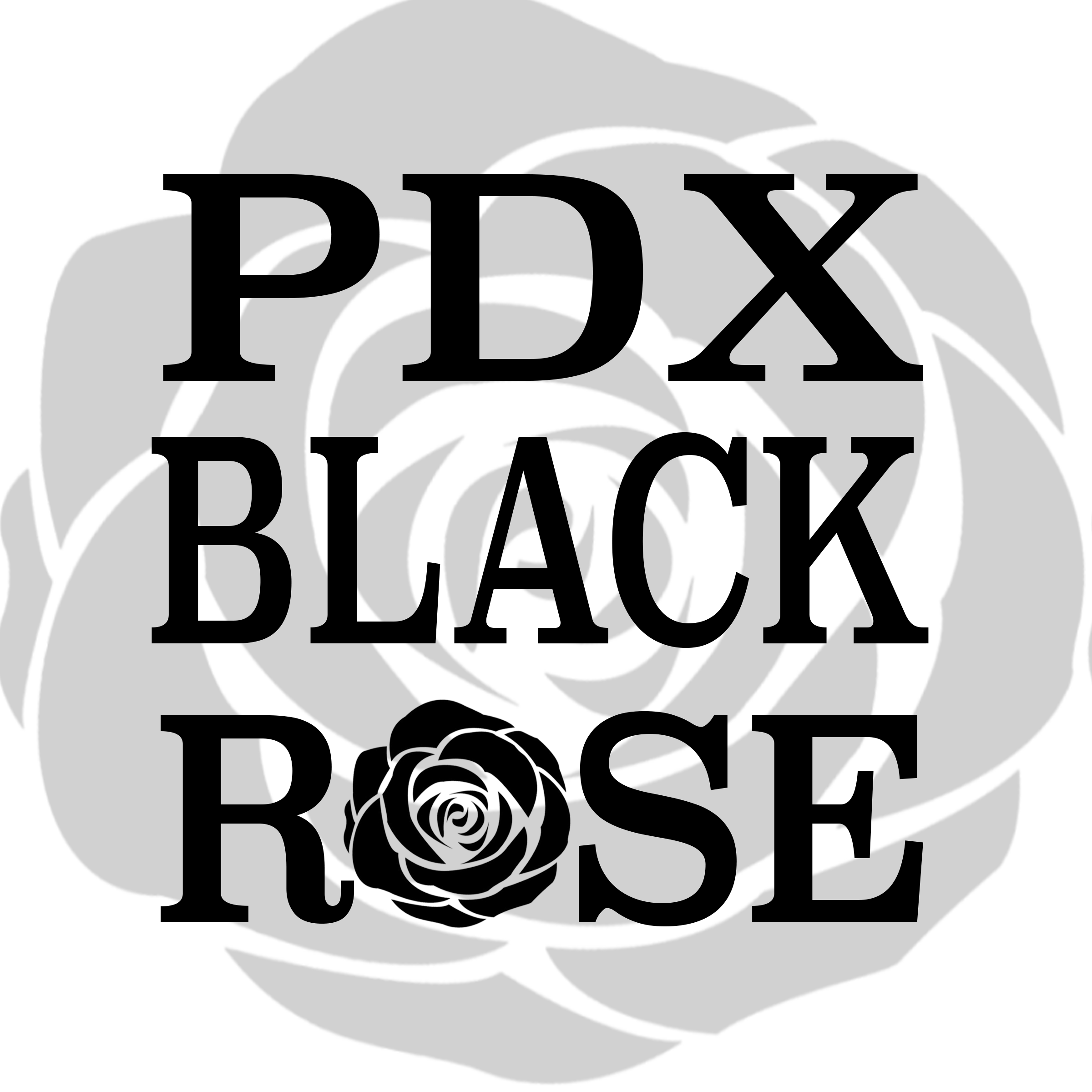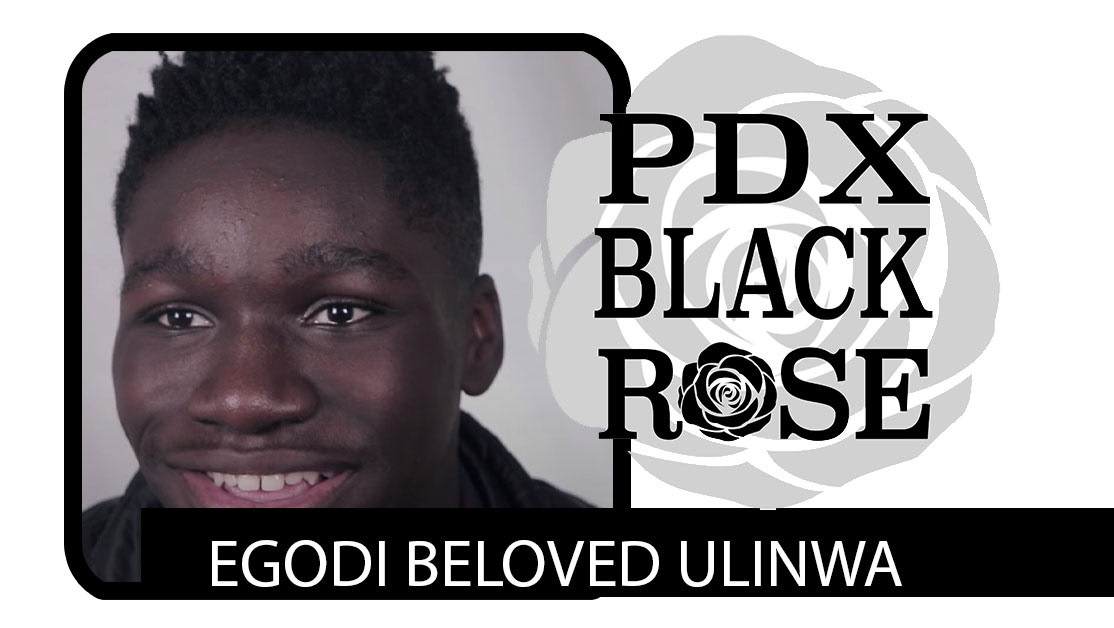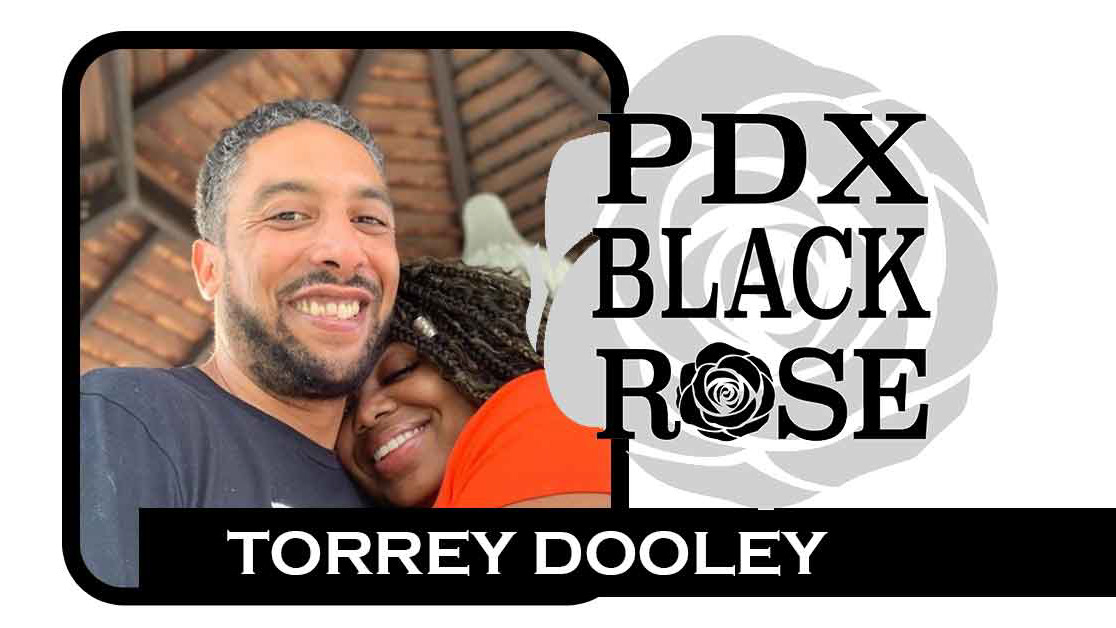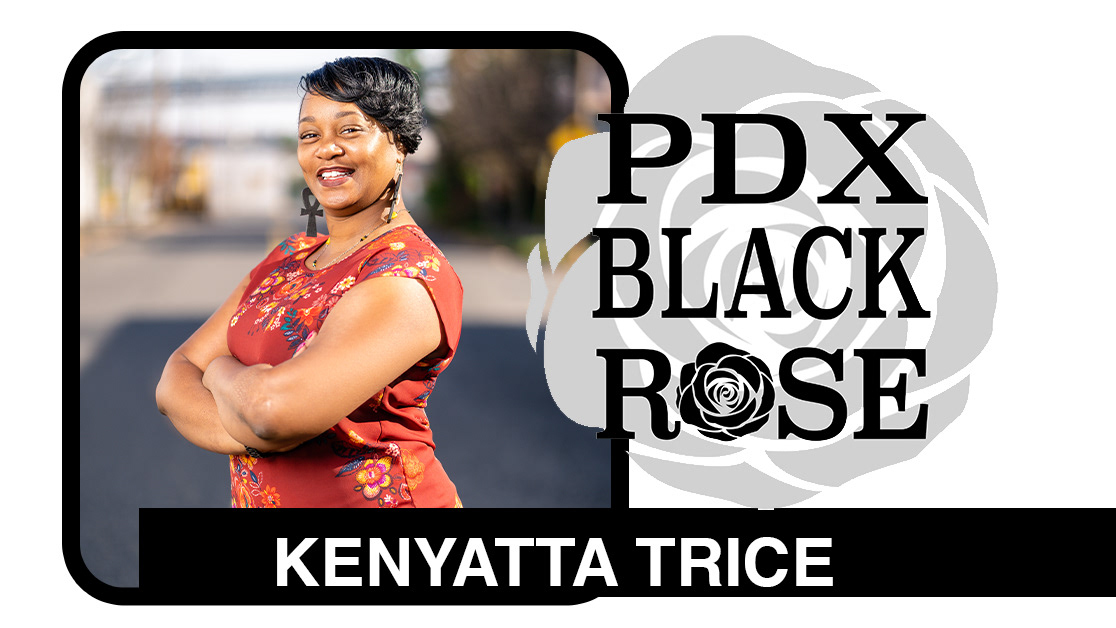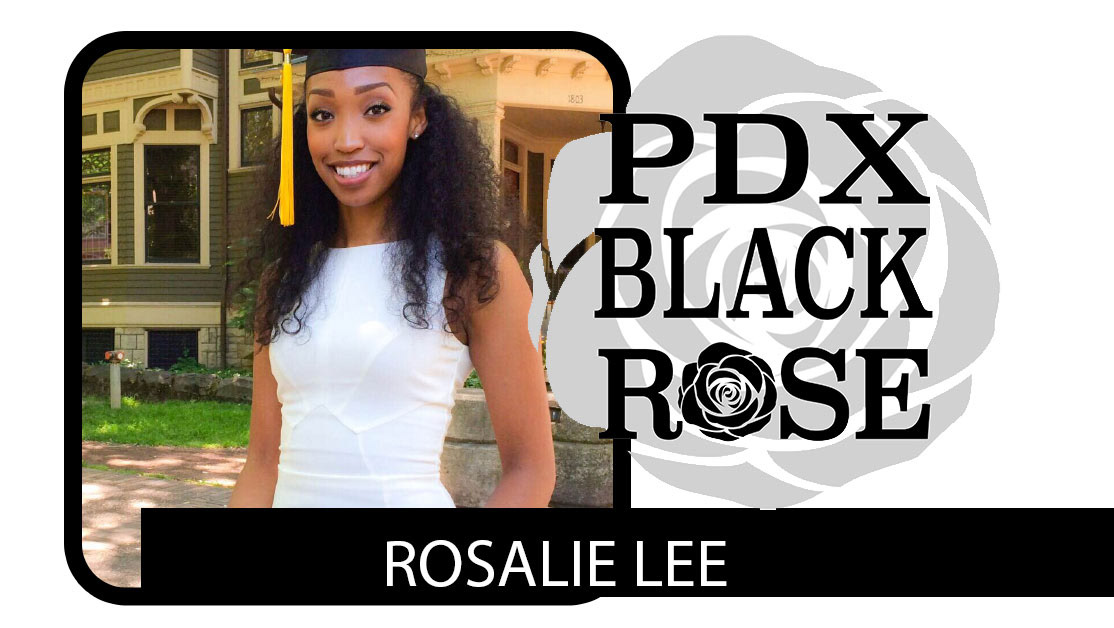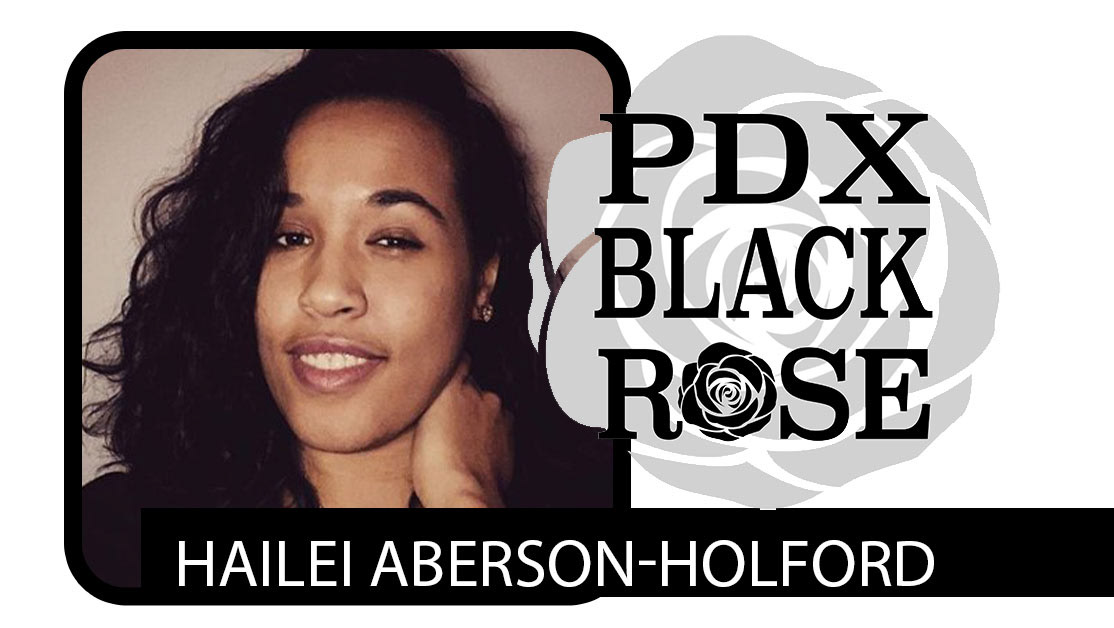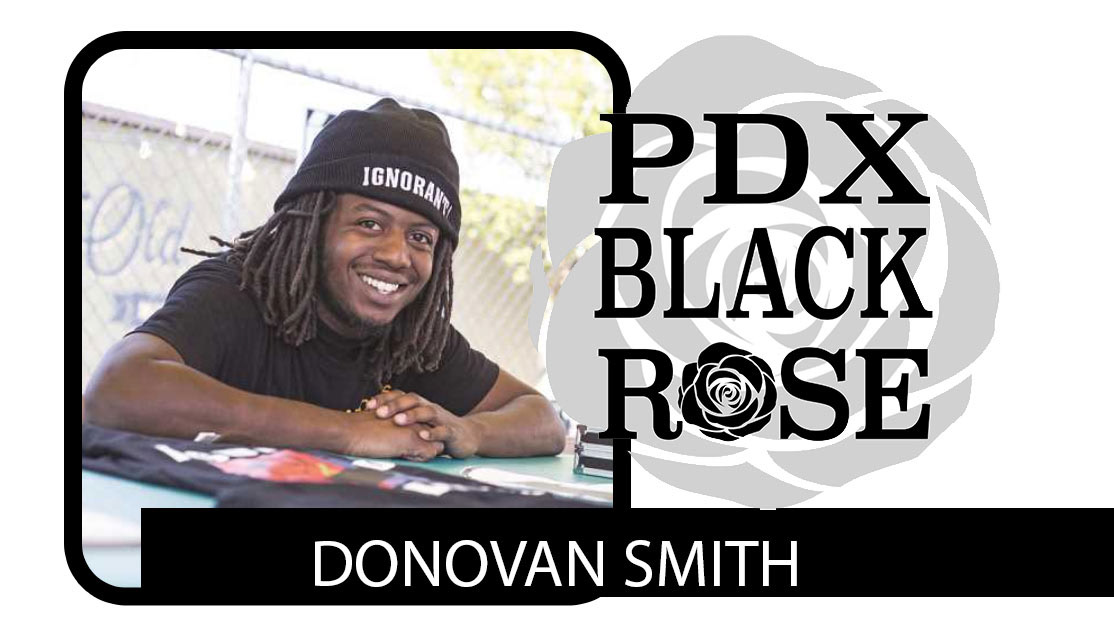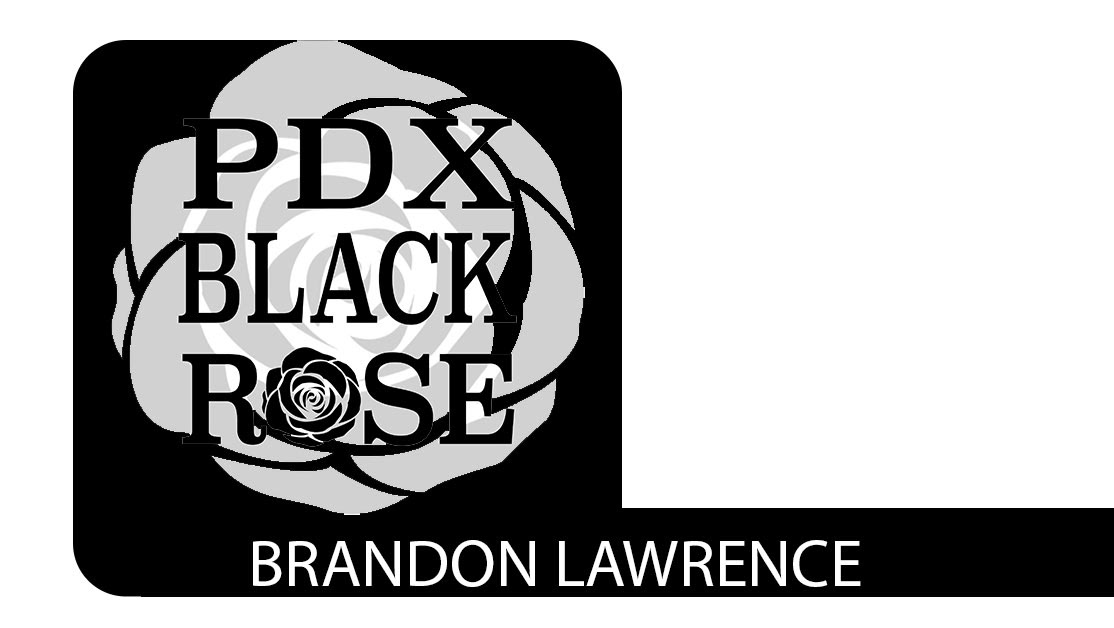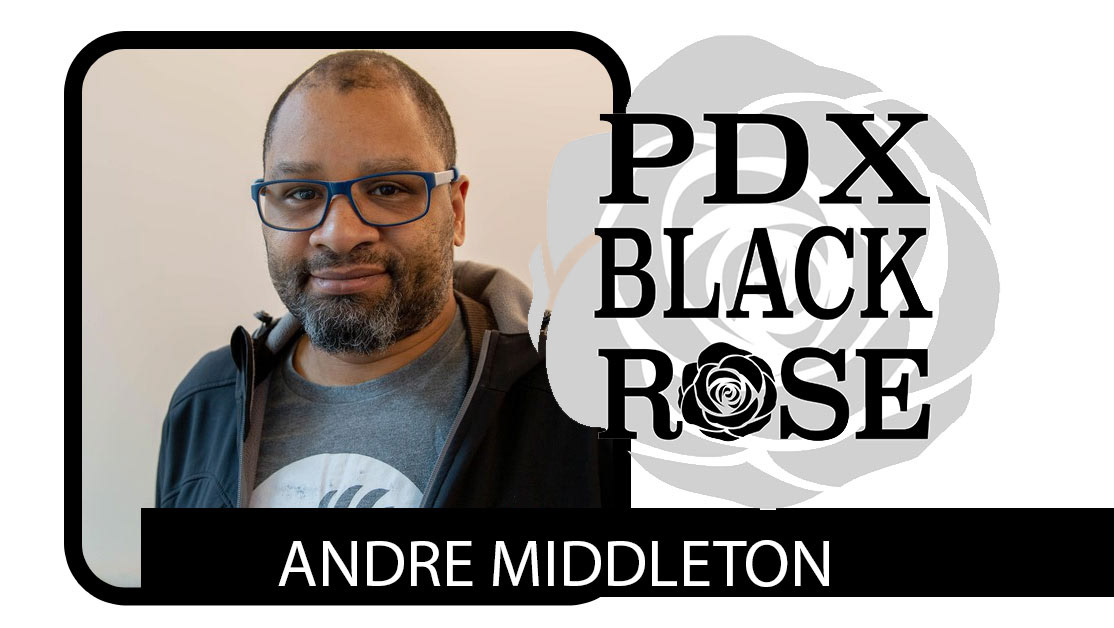Dr. Steven Holt is a native Portlander and owner of Try Excellence LLC. He grew up on Williams and Wygant with roots in Vanport. His Mother was in the third grade when the Vanport flood happened. As a kid, he learned the hard way what it meant to be Black in America, and more specifically what it meant to be a Black Portlander. In early grade school, his parents were sold on the idea that Black children would have the best opportunity to get a great education with the new bussing program that was initiated. As a result, him and a group of other Black students road a bus 90-minutes out of town to go learn in Lake Oswego. The idea was noble, but the realization was that the community that those Black kids were going into were not willing to hold their end of the bargain.
Dr. Holt suffered abuse and aggression from not only the students, but also the staff. Despite only being in the 3rd grade, he was already being taken out of class and steered into a profession that were expected of black men during that time. More importantly, her was having decisions made about his educational opportunities without his parents consent or knowledge. Negative experience after negative experience followed him as he tried long and hard to navigate the white would in his black skin. Despite his very real and harsh reality, he was determined to achieve what many white kids took for granted. The opportunity to walk into his own office with his briefcase in hand and a dapper suit to match.
With his PHD, he values the opportunities that come with it. As a black man with experiences almost exclusive to black people, he finds himself in a unique position where his advocacy for human decency and opportunities trickle into his profession. He is a champion for equity and inclusion. He is the chair of the Oversight Committee for N/NE Housing Strategies, he is on the Metro Bond Oversight Committee for Housing, and he is the Pastor of a church. Those are his volunteer roles meaning they are not compensated. He has a consulting company, Try Excellence, where does strategic planning, facilitation, crisis intervention, coaching, and a suite of other services. He is an equity consultant for the city of Gresham. He is an equity trainer for the Portland Police Bureau, the Gresham Police Bureau, Proper Portland, Portland Housing Bureau, Portland Parks, Office of Equity and Human Rights, etc. He is also addressing equity, inclusion, and bias in banking institutions. He also runs a non-profit.
He has been able to successfully push conversations forward. Pulling from his own experiences and passions, he is one of the movers and shakers making the Black Portland community and Portland as a whole a better community to live and thrive.
Notes from the Conversation
Disclaimer: what is written is a paraphrase of the conversations we have on our podcast. We encourage you to listen to the podcast to get the exact quotes from our guests.
Dr. Steven Holt.
He is a native Portlander. Grew up on Williams and Wygant with roots in Vanport. His Mother was in the third grade when the Vanport flood happened.
One defining moment was when the bussing program began. He caught a bus on the corner of Williams and Wygant to go to a school in Lake Oswego. It was 90-minute one way to go to school each day, and the only of color at the school in a sea of noncolor were the people getting off the bus. Dr. Holt describes how nothing was really done to prepare them for the experiences the kids were susceptible that went beyond foundational reading and writing skills. They also did nothing to prepare the community these kids were going to. As a result, the experience Dr. Holt had was negative. The bussing program has had mixed reviews. Some thought it was a waste of taxpayers’ money and others thought it achieved the mission is set out to make. Despite placing Black kids in better school with better resources, the kids had to deal with racism and discrimination by adults and kids alike.
Dr. Holt recalls getting off the bus and going into a classroom where there are 18 students and he is the only person of color. He didn’t have the language to articulate how he was feeling as a 2nd grader, but he felt anxiety, marginalized, and displaced because he stood out like a sore thumb and everyone around him treated him like a pariah. That ultimately affected his ability to focus and concentrate on his work. That is interesting because the purpose of the program was to give Black kids better access to resources that white kids had during segregation. By placing them around white children, one could argue that they would a least get an education worthy of a white kid. We now understand that despite getting the books and curriculum, black kids also get the social distractions that negatively affect their ability to learn. It was called “Lake No Negro” for a reason, and Dr. Holt experienced why.
—–
When he was in 3rd grade, at Lake Oswego, they were taking him out of class because it was determined that he couldn’t learn like the other kids and he was placed in another classroom isolated from other. So, as kids are learning reading, writing, and social studies he is being taught more blue-collar trade skills rather than foundational skills from a core curriculum. This was as a result, putting him behind all his classmates. He was 8 years old and already being primed for the professions he was expected to have rather than developing a foundation for social and economic autonomy. More importantly, teachers were taking him out of class without his parents’ consent or knowledge.
What Dr. Holt understood later is that denying him access to the core educational curriculum by removing him from class further reinforced the notion that he couldn’t learn the same way as the other kids. It wasn’t reflective of the reality that he didn’t have a learning disability, they were just taking him away from the information that was being shared then wrapping a skewed narrative around a fabricated reality. It was a clear example of the reality he was growing up in. Despite the push for Black people to get an equal footing in society, white institutions would go out of their way to alter the playing field so that white kids have the best opportunity for success at the expense of Black children.
Dr. Holt did not only experience emotional abuse he also experienced physical abuse at the school. He recalls in 4th grade upsetting the teacher so much that the teacher sat on his desk and kicked him in the leg multiple times. The assault resulted in noticeable bruising around his shins. Although he was resistant to tell his parents about what they were doing to his learning environment, he has more confidence to show his parents what his teacher did to him. His parents rushed to the school the next day and removed him from that school system.
—–
He got into the program after someone came to his parents’ house and sold them the concept. Apparently, the school district hired Black people to go into Black communities and sell it to them. It was sold as a great program that takes Black kids to suburban schools and gives them an advanced education, etc., etc., but they did not talk about the fine print.
I think people tend to downplay the nuances that come with being the only black person in a sea of white as if it is something that can be ignored. Many of the micro aggressions Dr. Holt experienced did not feel micro to him. They were very real and impactful. Yet, much like mental health and other things we can’t see with our eyes, they can be just as impactful on our health and productivity as any disease. They add up and they distract from the goals and what makes life work.
After having such negative experiences with white people and predominantly white institutions, Dr. Holt began to develop as negative view of white people. He didn’t feel that they had his best interest at heart, so he always kept his guard up. For a 7th grader, that is a big task because that is also the time where kids try to find themselves and their voice. To have to worry about his safety in a place that is majority white is like worrying about a shark in the middle of the ocean. This was also during the time Roots came out. He recalls a white girl at his school calling him Kunta Kinte then gathering a mouth full of saliva and spitting is at him. The spit hit him in the face and gravity pulled the spit from his face to his neck and shirt. What resulted from that incident was a handprint on her face from the light side of his hand. He was furious. The school staff grabbed him and pulled him into the office to suspend him, but nothing happened to her for initiating the altercation.
—-
The ongoing impact and great effect that bussing was supposed to have was co-opted by the negative experiences that individuals, particularly white ones, explicitly gave to black people. Nothing was being done to help the different communities know how to function together. Ultimately, these experiences make young black kids aware of the harsh realities earlier than they would like and/or are ready for. It is one thing that most white kids do not have to confront at 4th or 5th grade.
What is unfortunate for black people is that we get exposed to the realities that America is not particularly friendly or predisposed positively to black people. Not just people of color, but black people specifically. There is a definite attitude about black people that is pervasive in all industries and arena. It is unfortunate that black kids cannot just be kids. They can’t run, jump, play, or live like others, but it does make them deal with reality early. Whether that is a good thing or not can be up for debate, but the fact is that it is what it is. Dr. Holt has been married for over 30 years and has children and grandchildren. From his experiences, he made it a point to help his children know the reality of the environment they were born into and give them tools to navigate their experiences. Something he never got as a kid growing up in Portland.
Quite often parents don’t intend to ignore the other realities their kids face because they are busy trying to make things work themselves. Things get pushed to the side when they have to worry about bills, jobs, and other forms of adversity that plague adult life. There is rarely time or space to deal with the trauma they have let alone provide support for their kids. Interestingly enough, when Dr. Holt provided that support for his kids, they felt he was exaggerating. His kids were adamant to tell him that the world he grew up in was what they read in history books. “C’mon dad, we are passed that,” they urged. What society tries to do is trivialize the experiences of black people and make them appear as if society has moved passed it. His kids, like many millennials growing up, drank that Kool Aid. As they got older and entered the professional landscape, they quickly learned that racism and discrimination is alive and well. It is just more subtle and covert. No one ever opts in explicitly, but the difference in paths and opportunities tends to come down to the hue of your skin.
—–
With Oregon’s history pertaining to Black people, it has not been good. New voices and thinker have an opportunity to push the culture passed that history because they are committed to being bigger than the history. Because of the consistent oppression and lack opportunities, the people who got benefits became the protectors of those benefits. Very often a black person would get access and not bring people in behind them because it took them so long to get it and they are worried that it may be taken away. As a result, they keep certain opportunities away from others and withhold information out of fear. Even though strength comes from community and collaboration, the crabs in a barrel mentality often prevailed. Interestingly enough, when the community that gave the opportunities to the black people decided they were done with them, they would cast them aside. This would lead the black people who were once gatekeepers now struggling back to their community for help. The community would resist helping because they never forget how those black individuals never opened the gates they were protecting to help other black people. It is a vicious cycle that continues generation after generation.
There is a lot of different industries and opportunities in Portland. What Dr. Holt trying to do is create infrastructure that generations can build off and participate in those different industries. He alludes to the power pain has in this process of building a foundation. Pain can make you hide and withdraw by staying in it, holding on to it, rehashing it, and remembering it. Pain can also motivate you to be different. It can make you change as a result of pausing, pondering, and processing. For Dr. Holt, navigating pain isn’t anything new. It gave him an excuse to alter things he saw in his life that he no longer wanted, especially around racial issues. Going all the way through college and being one of seven people of color in the whole college (not 1 of 7 black people, but 1 of 7 non-white people in the whole college), he experiences a lot of the very same things he experienced being buses to Lake Oswego as a child. Post-graduation, he tried to avoid and withdraw from those racial issues by doing what most black people were encouraged to do: put you head down, work, and provide. He quickly learned that you can’t avoid issues of race like that. He couldn’t insulate himself and act as if it doesn’t exist. Accepting that reality as truth, he decided to get involved intentionally and with a strategy to address institutions, structures, and opportunities to shift the narrative of power. As a result, he hopes to take the issues head on and hopefully educate some people along the way.
To be frank, there is work that needs to be done, and someone has to roll up their sleeves and do it. It is either going to be you or someone else. It might as well be you.
—–
Can you have a successful black person without dealing with the racial components of existing?
No, You cannot. As a black person becomes successful, they have an obligation to bring people up with them and create a legacy. As black people, we have an obligation to make sure that the injustices that plague us on our journey toward success does not affect other coming after us. This leads us to ponder whether a black person can be successful without elements of activism if they have to overcome adversity as a result of their dark hue. Unfortunately, it is possible. There are many who have succeeded and “forgot where they came from.” There are countless examples across the country where people did not pull others up when they made their way to the top of the ladder. Dr. Holt has seen times where people have even got in the way of other people receiving access. It is the field and house slave mentality where we fight each other over the same amount of resources as if the resources are sparse and not vast and fruitful.
—–
Dr. Holt has a PHD in Philosophy. Growing up, it was not his dream to earn a PHD, but to avoid the expectations society placed on him at a young age. His father earned a PHD in engines when he was young, and he saw his father working on cars for decades. That was not appealing for him. He knew he wanted to do something different. He wanted an office. He recalls kids riding the bus in Lake Oswego talking about their dad’s offices. He saw himself with a briefcase going in and out of a functioning workspace.
He pulled from the oppression and suppression that he needed to be better than his white counterparts in order to be considered half as good. He developed a work ethic that labeled him an over achiever. He had a commitment to excellence in work, volunteerism, etc, that guided his path towards earning a PHD. He didn’t know exactly what he wanted to do, but he knew he wanted a particular life. For him, it was never hitting a plateau and celebrating an arrival. It more of reaching a particular goal and that goal opening more opportunities to accomplish other things.
It places him in an interesting space now that he has a PHD. Any degree means that there is a proficiency in that arena. It is not all inclusive. Since he had an expertise in a particular arena, he has an obligation to produce in said arena. Having a PHD allows him to navigate and participate in what he is passionate about because credibility is very powerful in American society. He can add value to his lived experience in an arena because of his credentials. Those credentials must be respected because they were earned through merit. For a Black man with experiences, conviction, and a Doctorate, he now has a voice, access, and information, and that is powerful. He can now enter into systems that have negatively impacted his life and work to rebuild them for the better. He is working locally, regionally, and nationally to address the systemic racial prejudice that exist in America that kept access from people of color and specifically Black people.
—–
Do Black people have the luxury to drop out of college?
Dr. Holt believes that the standard is different for a white man than a black man. Dropping out of college and starting a business is different for a white man is a different experience than that of a black man. It can be done, but it is a unique path and a higher climb for Black people. What he says is that education provides language and discipline to be successful. Some don’t need school to educate themselves, learn the language, or develop the discipline to be valuable. There are tons of cheaper alternatives to traditional education. What that education doesn’t guarantee is the acceptance when you enter into a space. Having a piece of paper such as a degree or PHD open the doors to access that those without would never be allowed to walk through.
Being black and understanding the history of black people in America, Black people do not have the luxury to pass up opportunities of education and professional development. Most black people don’t know what it is like to have a degree. So, to pass the opportunity because it is “not for them” is selling yourself short of your potential in society. We can talk about how this is the land of opportunities and free market. There is a new person making it rich off their passion and determination every day. That is true, but there are only 365 days out of the year and over 500,000 people in this country. The probability without having credentials to making enough to live comfortably is just very low. Dr. Holt notes that this is a result of the limitations that have been placed on Black people from American society. The determinants around success and failure have been centered around pathways of education and certifications. Around that pathway are barrier and hindrances blocking certain people from entering. Black people have demonstrated resilience over and over again, but we don’t know what we don’t know. When generation after generation are locked out of pathways to success granted to other communities, it is unfortunate that see Black people not even consider the possibility entering the pathways from the beginning. The denial of access has kept our nation from achieving its full potential. If black people were granted access to those pathways, we would probably be a different nation that we are today, and that would be a better nation than we are today.
—–
What does it mean to not have a “real job”?
Dr. Holt does not clock in at 9am and clock out at 5pm. He doesn’t submit a timecard, or any traditional method of exchanging time for money. Yet, he makes enough to live comfortably and provide for his family. What many folks aren’t real jobs are his reality as a PHD holding doctor. He is the chair of the Oversight Committee for N/NE Housing Strategies, he is on the Metro Bond Oversight Committee for Housing, and he is the Pastor of a church. Those are his volunteer roles meaning they are not compensated. He has a consulting company, Try Excellence, where does strategic planning, facilitation, crisis intervention, coaching, and a suite of other services. He is an equity consultant for the city of Gresham. He is an equity trainer for the Portland Police Bureau, the Gresham Police Bureau, Proper Portland, Portland Housing Bureau, Portland Parks, Office of Equity and Human Rights, etc. He is also addressing equity, inclusion, and bias in banking institutions. He also runs a non-profit.
Obviously, his hands are in a bunch of things. Sometimes he wishes it were as simple as a 9-5 job, but for him he would not be fulfilled. He believes we as people, particularly Black people, have a responsibility to shift a narrative, and that cannot happen if people are comfortable. Try Excellence affords Dr. Holt that economic sustainability to do the other things that benefit black people at the same time. Given the short window of time he has on life ledger, he hopes to influence, replicate, inspire, and instruct to now find opportunities and pathways to live out their convictions and passions. He wants to encourage people to leave things better than when they found them.
When you put his involvement in a pot, it sums up the black experience. He is involved in the church, he deals with the police, he influences housing, and even dabbles in finance. His body of work stays true to the mission he set out for himself early on in life.
—–
What is it like working with the police as an equity trainer and a black man?
Dr. Holt describes it as a specific demarcation that still baffles him to this day. Police officers who are 40 years old and older, and have been on the force for 10+ years are hardened and very resistant to the conversation around equity, bias, prejudice, etc. Officers who are under 40 years old and have been on the force for 10 years or less are very open to the conversations because they understand what the need is. He describes being able to draw that line across demographics that show a stark shift in temperament and willingness to participate in the conversations around equity and inclusion. He sees is played out in trainings, in meetings, and in one-on-one interactions. It is a very different mindset when you cross that demographic line.
This insight has informed and enlightened him. Many things that officers do he had no idea about. In his findings, how we recruit, hire, and train officers from day one needs to be radically altered because the methods and philosophy are misaligned with the needs of the people they are serving. Dr. Holt believes that there needs to be at least six months to a year of immersing officers in communities they are going to work in. Officers need to learn the lay of the land, the community dynamics, the people, and cultural customs before they are given a gun and taught to shoot, drive a police cruiser, and released on the street. When officers start seeing people as humans, start understanding the culture, understanding the dynamics of the community, and understanding their limitations it shifts how officers deal with people. It shifts the narrative. Unfortunately, none of that is done.
For example, they will hire a white guy from Ashland, Oregon, and put him in North Portland with a badge and a gun. He has never been around Black people. He knows nothing about Black people, and what little he does know is from TV, movies, and the radio. It is an unfair experience for both the officer and the community he is tasked to serve. He is set up for failure and the community is setup for mistreatment.
Dr. Holt is actively trying to improve this specific situation and many more like it by proposing institutional, hands on remedies. It will cost money but will ultimately save lives and improve trust between police and communities of color.
—–
Money is a factor in improving policing.
Money is a major issue when it comes to providing adequate policing in communities. Some may argue that to improve policing, which Dr. Holt suggest, the toll on the taxpayer would be to steep. In simple terms, “it is too expensive to make the necessary improvements.” Is that really true, though? After every incident of police brutality, a lawsuit and/or settlement follows. Even the ones we don’t hear about. That costs the city and the taxpayers a lot of money. Millions to be exact. These lawsuits could be avoided if police are trained the right way. Yet, they incidents are labeled “isolated incidents” as a rebuttal. Those isolated incidents are perpetuated and lead to bad blood between both the police and the communities they serve. Just like the old AAMCO commercial, “pay me now, or pay me later.” There is money being spent on misconduct by police, so to say that it is too much to invest in better training is disingenuous and lazy. Paying to prevent incidents is always cheaper than paying to deal with the repercussions.
In 2014, the city of Portland made a deal with trader joes to bring them into Northeast Portland off Alberta. There was a big incident surrounding that project. Since then, Portland made a promise to reinvest in housing to create single-family, multi-family, owner, and rental properties in N/NE Portland. They called it the Urban Renewal Area. The only thing that had been happening was that Black people were being moved out and white people were moving in. So, they set aside 20 million to reinvest into the community without any framework for how that is going to happen. Portland Housing Bureau was charged with that work. They brought together community leaders for four meetings to think through how to engage the community to figure out what the priorities should be for using the money. Dr. Holt was asked to be a part of that group and sat in the meetings. He was also asked to be a part of the forums used to field information from the community. There were five forums in various areas of the city.
Dr. Holt expressed that even though he is glad to be involved in conversations this is nothing new. There have been conversations and meetings around reinvesting, and they fall short when there is no committee put in place that oversees the projects and holds the parties accountable for what they said they were going to do. He wanted to make sure the promises being made were the promises being kept. As a result of his suggestions, he was asked to chair said committee. Of course, he accepted.
Over the past 5 years with work from Dr. Holt and member of the team he crafted, they developed a plan to distribute the 20 million dollars into 5 areas. As of now, that $20 million grew to $100 million that is being reinvested back into the community. So far, that has resulted in 1250 doors being brought back into the neighborhood from affordable home ownership to rentals and condos.
The committee meets every other month on the second Thursday of the month in the evening. The meetings are open to the public so they can hear the process. Through this very process, the crafted the only preference policy in the nation. This policy gives priority to the people who were displaced due to gentrification the opportunity to move back. Preference couldn’t be given to people based on color because it would not be held up by HUD, so they directed it around geography. Since the geographic area was a byproduct of redlining and segregated practices, the population within those confines were mostly black. If those black people could prove that they were displaced due to city action, then they would get priority to move back with support from the $100 million reinvestment. They still need to income qualify, but the goal is to provide access that was not available in the past.
Key Links
